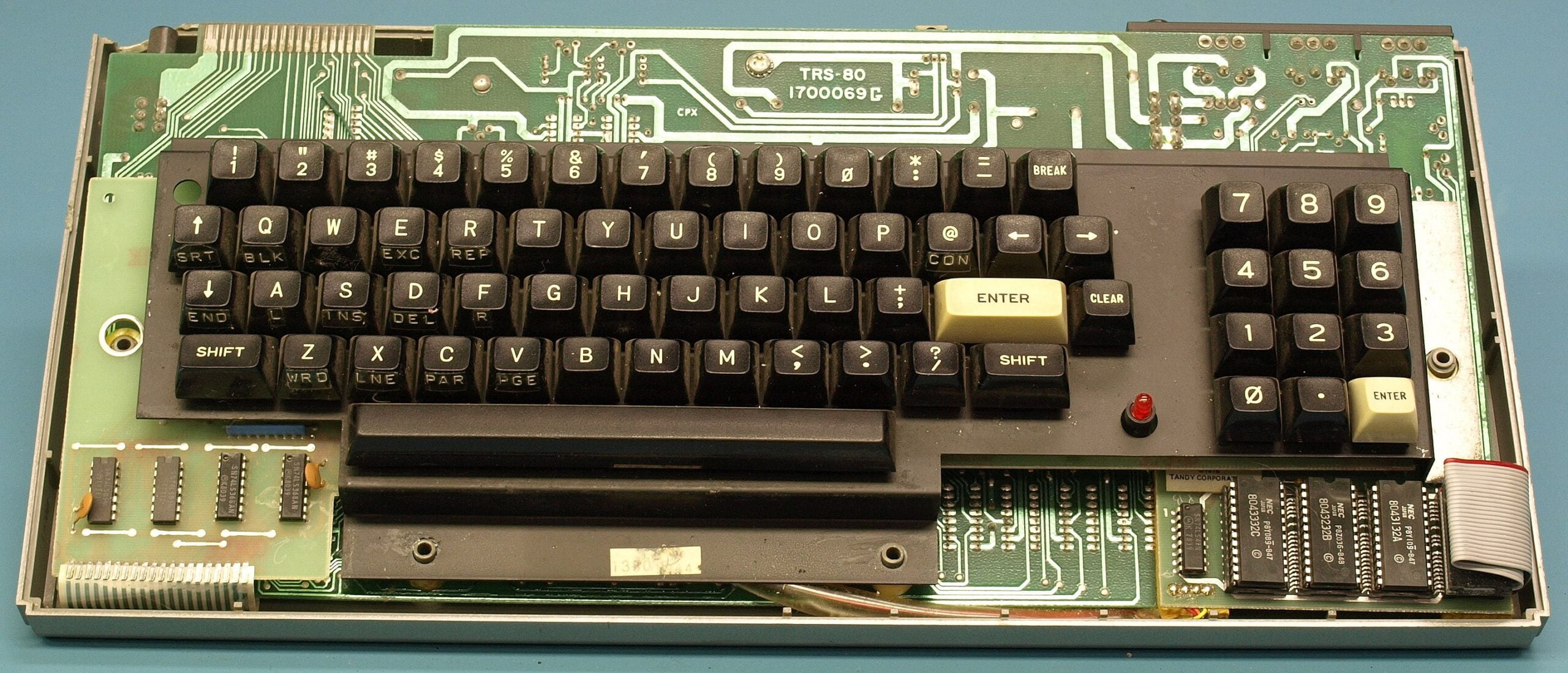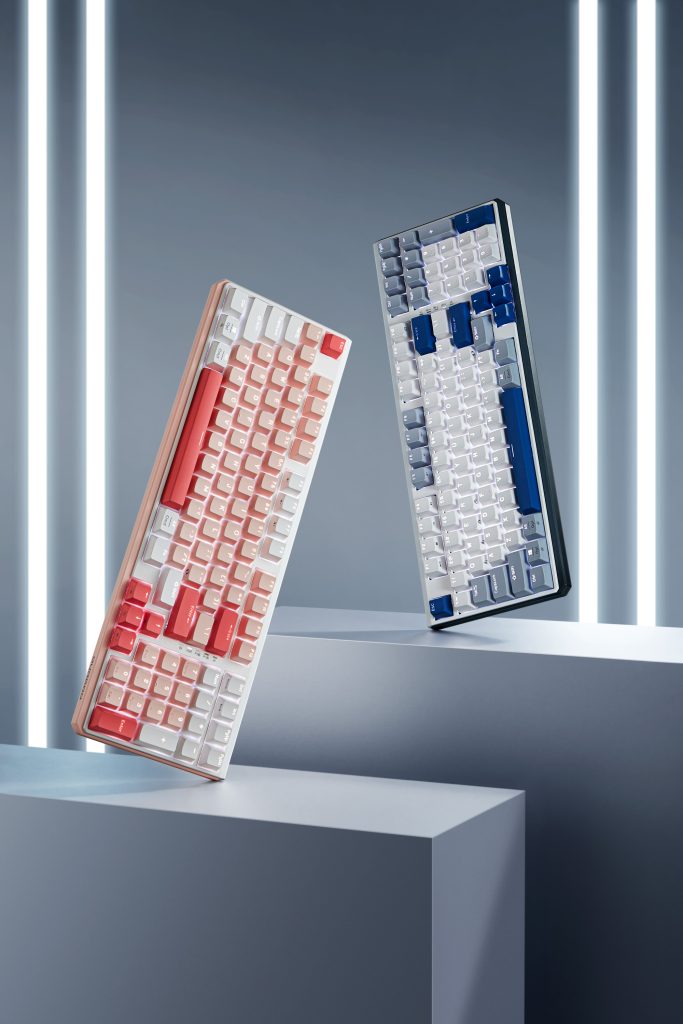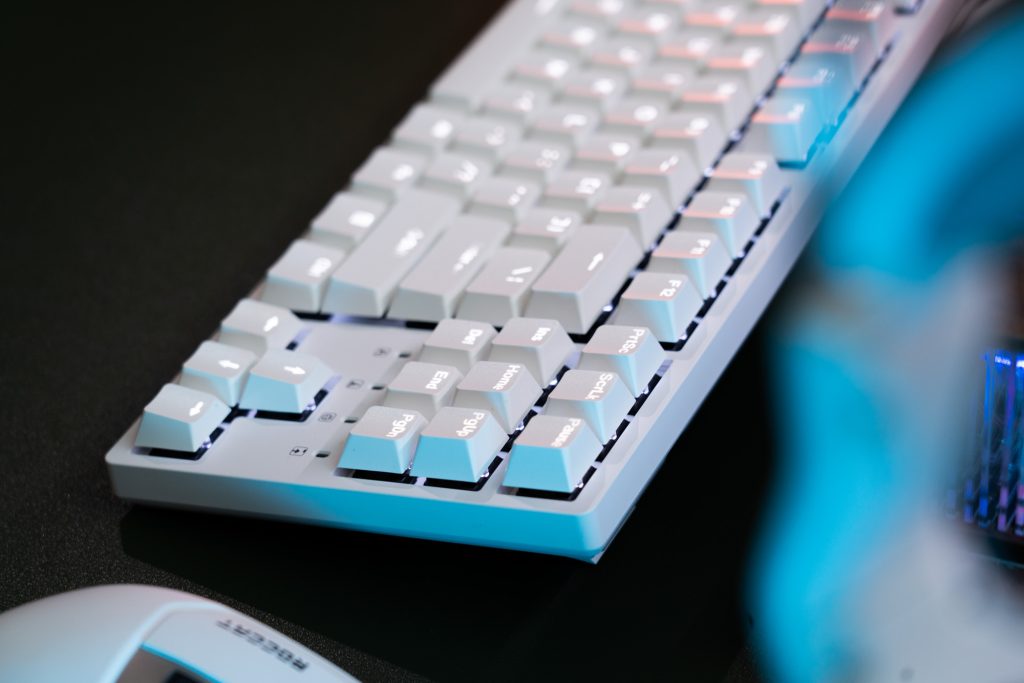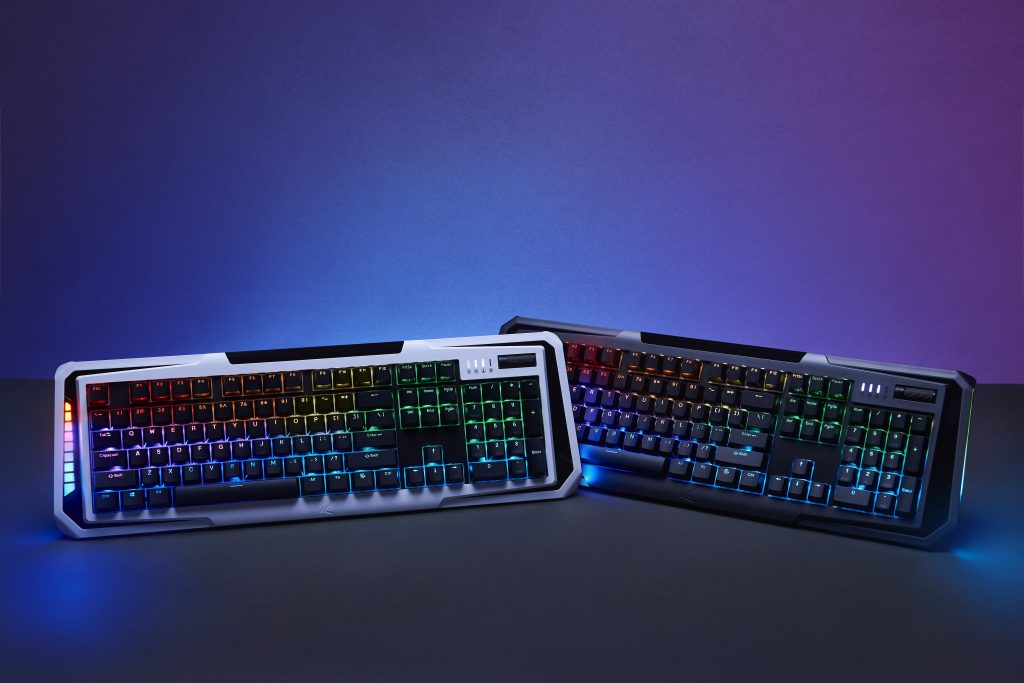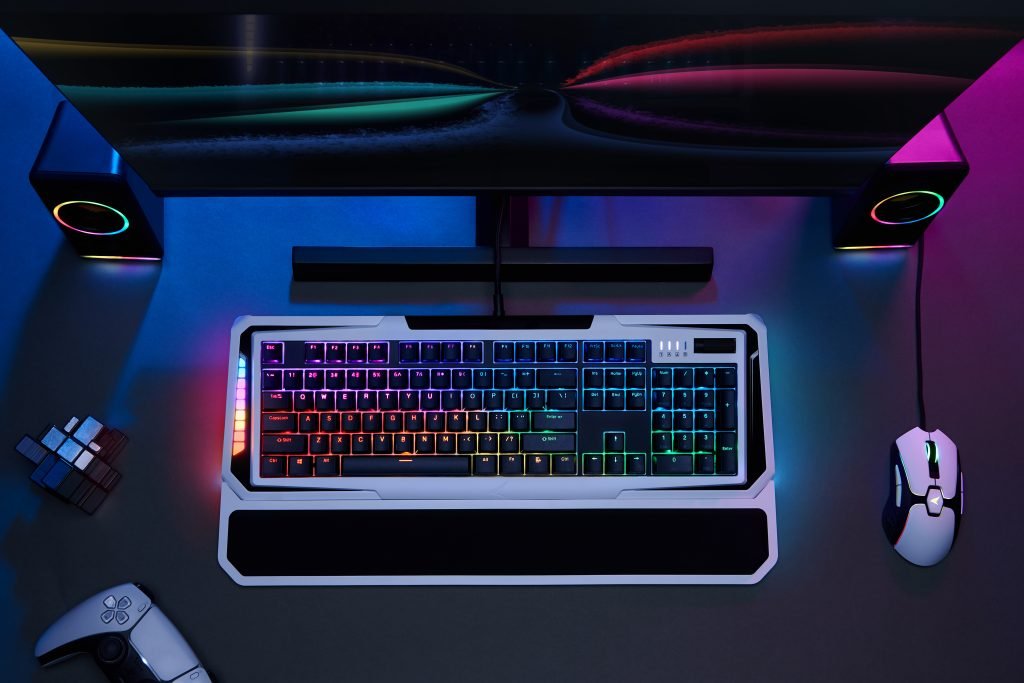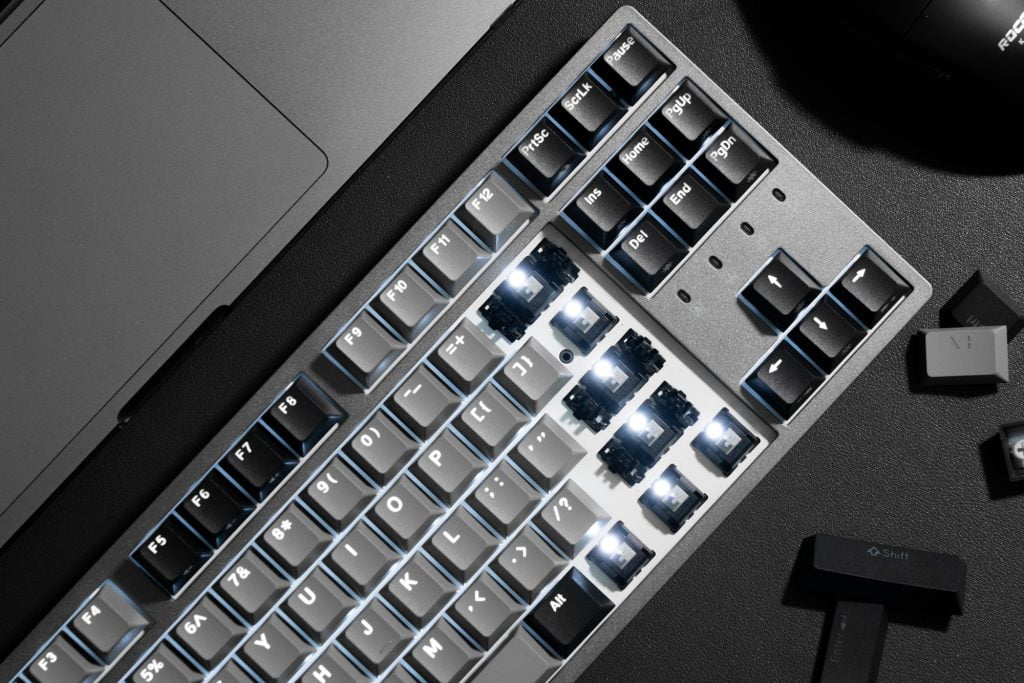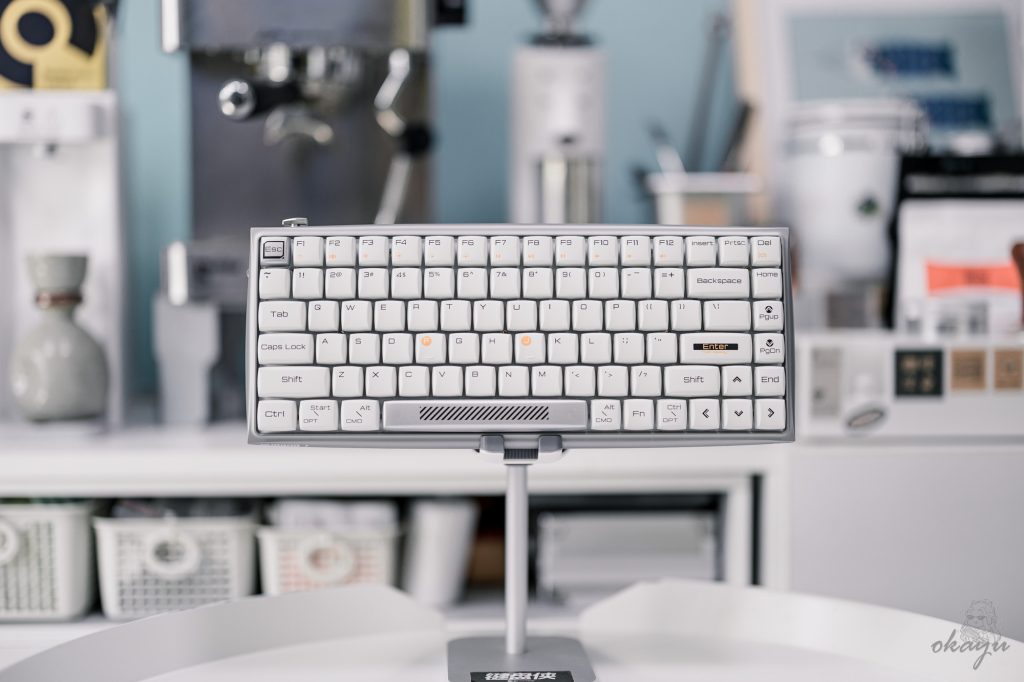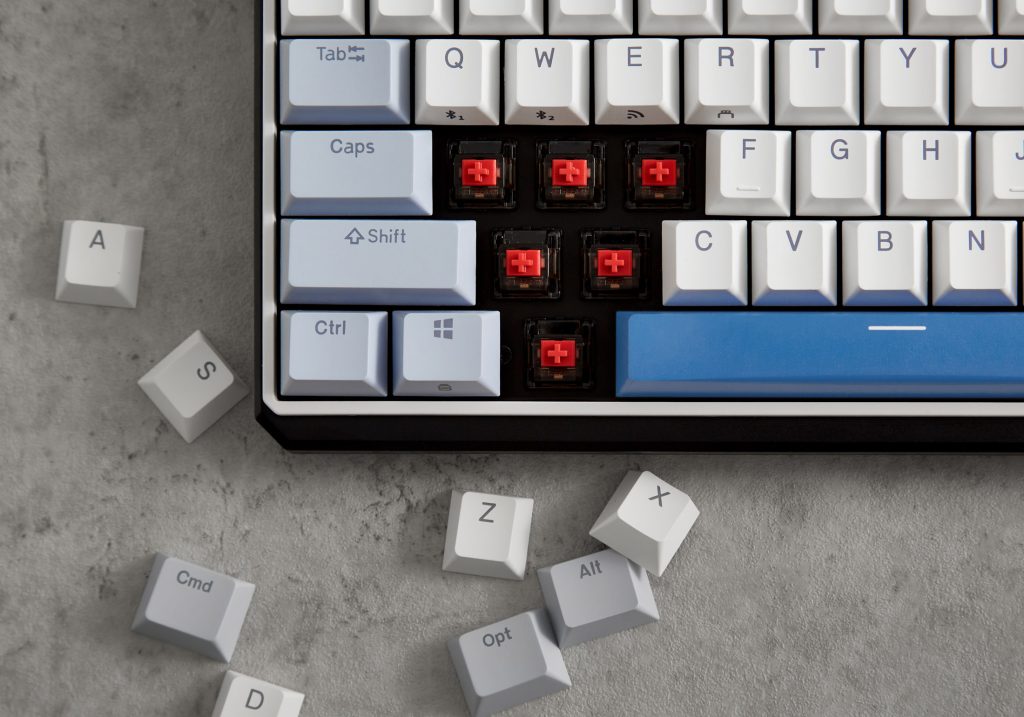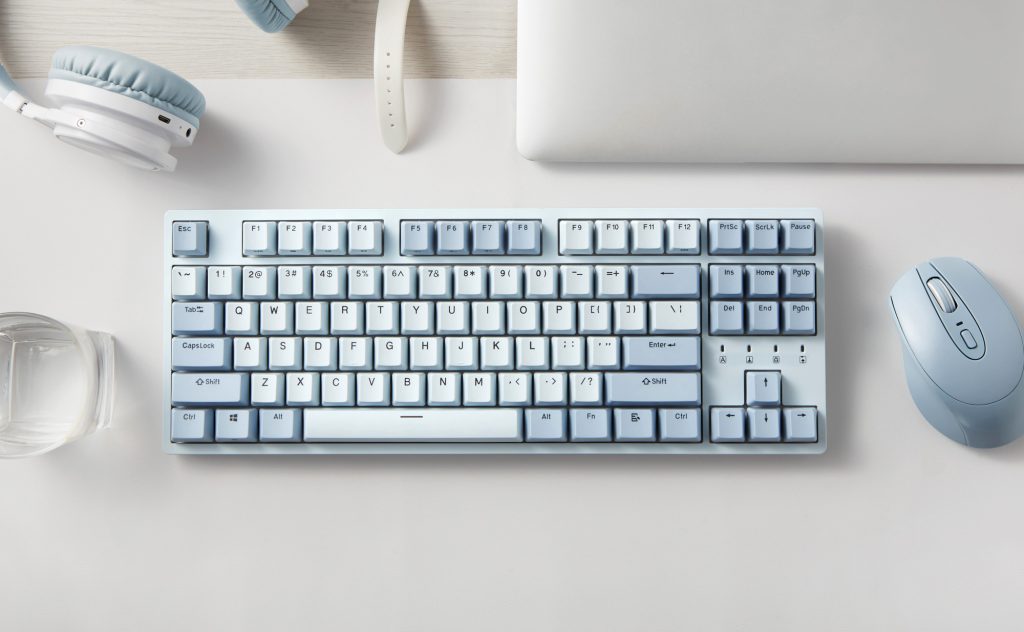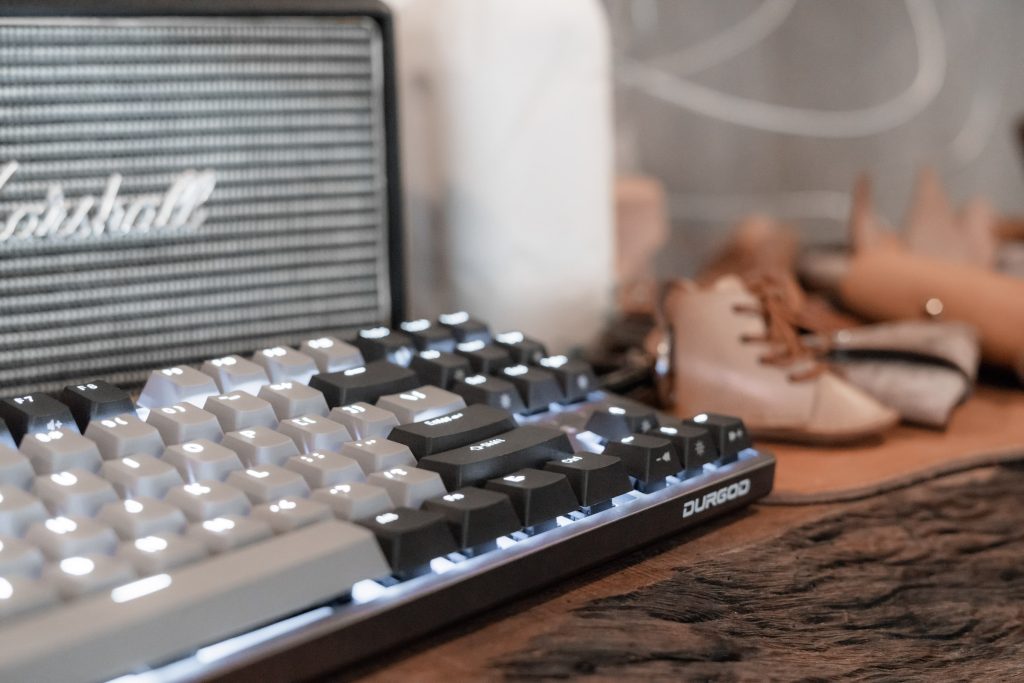The Keytronic Corporation, established in 1969, played a pivotal role in the development of keyboard technology, particularly in the capacitive keyboard domain. Here’s a detailed look at their contributions, the capacitive keyboard technology, and its influence on the industry.
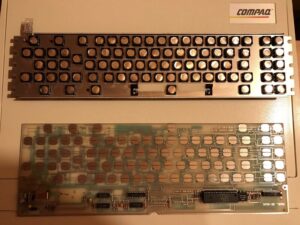
Keytronic Corporation
- Foundation: Keytronic was founded in 1969 and initially focused on producing electronic keyboards.
- Innovation: Keytronic is credited with significant innovations in keyboard technology, particularly in the development and popularization of capacitive keyboards.
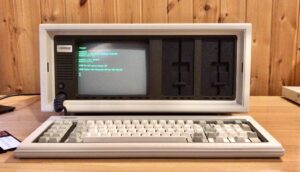
Capacitive Keyboard
- Mechanism: Unlike mechanical keyboards, which rely on physical switches to register a keypress, capacitive keyboards use the capacitance change resulting from the proximity of a human finger to detect a keypress.
- Construction: They typically feature a printed circuit board with a capacitive pad beneath each key. When a key is pressed, it changes the capacitance between the pad and a corresponding sensor, which is then registered as a key press.
Difference from Mechanical Keyboards
- Physical Contact: Mechanical keyboards require physical contact to close a circuit for each keypress, whereas capacitive keyboards do not require physical contact to complete a circuit.
- Durability: Capacitive keyboards generally have fewer moving parts, which can result in greater durability and a longer lifespan.
- Typing Feel and Noise: Mechanical keyboards are known for their distinct tactile feedback and sound, which can vary based on the type of switch used. Capacitive keyboards tend to be quieter and can have a different tactile feel.
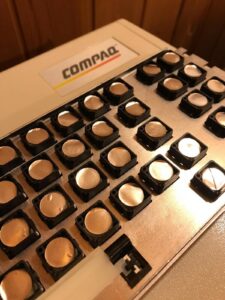
History and Development
- Early Use: Capacitive keyboard technology was not widely used in the early days of computing, mainly due to cost and complexity.
- IBM’s Role: IBM was a significant player in capacitive keyboard technology, especially with their famous Model F keyboard, introduced with the IBM PC/AT in 1984.
- Advancements: Over time, the technology improved, allowing for more reliable and cost-effective capacitive keyboards.
Inventors and Models
- Keytronic’s Contributions: Keytronic was instrumental in advancing capacitive keyboard technology, although specific inventors within the company are less well-known.
- Notable Models: Keytronic produced several models of capacitive keyboards, which were known for their durability and reliability.
Typing Mechanism and Element
- Sensing Method: The key mechanism relies on sensing changes in capacitance rather than mechanical action.
- Key Design: The keys are designed to move just enough to change the capacitance. Which requires a different design approach compared to mechanical switches.
Influence on Industry Trends
- Industry Adoption: The development of capacitive keyboards influenced the keyboard industry by offering an alternative to the mechanical switch, which dominated the market.
- Impact on Design and Functionality: Their design principles led to quieter, more durable keyboards, influencing modern keyboard designs, including those in laptops and low-profile keyboards.
- Influence on Modern Technologies: Capacitive sensing technology used in these keyboards is a precursor to the capacitive touch technology found in many modern devices, like smartphones and touchpads.
Keytronic and their work with capacitive keyboards significantly influenced keyboard technology, offering an alternative to mechanical switches and paving the way for innovations in both personal computing input devices and broader capacitive sensing applications.
The resurgence and popularity of mechanical keyboards in recent years, especially among certain user groups
Attribution for the factors below:
Tactile Feedback: Mechanical keyboards are renowned for their tactile feedback. Each key has its own switch, which provides a distinct physical response when pressed. This feedback is very popular with typists and gamers for its precision and satisfying feel.
Customization: Mechanical keyboards offer extensive customization options. Users can choose from various switch types (like Cherry MX, Topre, or Romer-G), each providing different actuation force, noise levels, and tactile feedback. Keycaps can also be easily replaced, allowing for personalization in aesthetics and feel.
Durability: Mechanical switches are known for their longevity. They can withstand tens of millions of keystrokes, making mechanical keyboards more durable than their membrane counterparts. This long-term reliability is a significant factor for users who want a lasting product.
Gaming Performance: Many gamers prefer mechanical keyboards due to their quick response times and the ability to register more key presses at once (n-key rollover). The precise and consistent key actuation helps in fast-paced gaming scenarios.
Factors (II)
Typing Experience: The typing experience on a mechanical keyboard is often considered superior. The clear actuation point of each key can lead to more accurate typing. Also, more enjoyable typing experience, especially for those who type a lot, like programmers and writers.
Nostalgia and Aesthetics: There’s a certain nostalgic appeal to mechanical keyboards, reminiscent of the early days of computing. Additionally, the modern mechanical keyboard market offers a range of designs. From sleek, minimalist models to retro-inspired ones with RGB lighting, appealing to various aesthetic preferences.
Acoustic Quality: The sound of mechanical keyboards is appealing to many users. Each switch type offers a different sound. It can be a crucial factor for users who enjoy the auditory feedback while typing.
Market Trends and Community: The growth of online communities centered around mechanical keyboards has spurred interest in these devices. Enthusiasts share designs, modifications, and reviews, contributing to a vibrant market filled with diverse options.
While mechanical keyboards generally have a higher cost compared to membrane keyboards, many users find the investment worthwhile for the enhanced durability, performance, and overall user experience they offer.
For more knowledge of mechanical keyboards, visit DURGOD.



